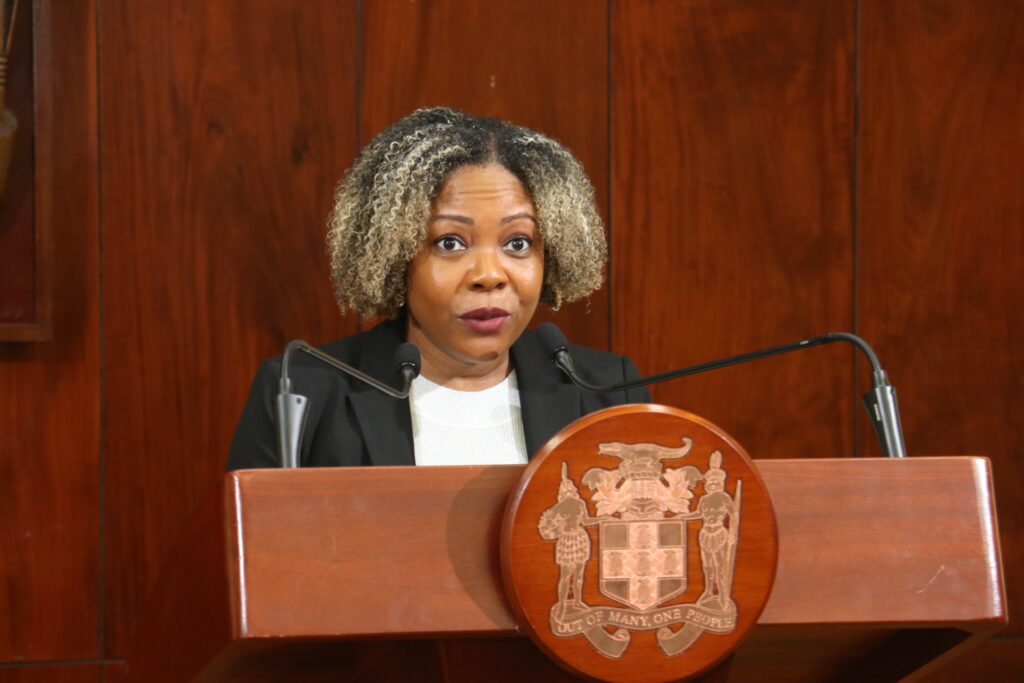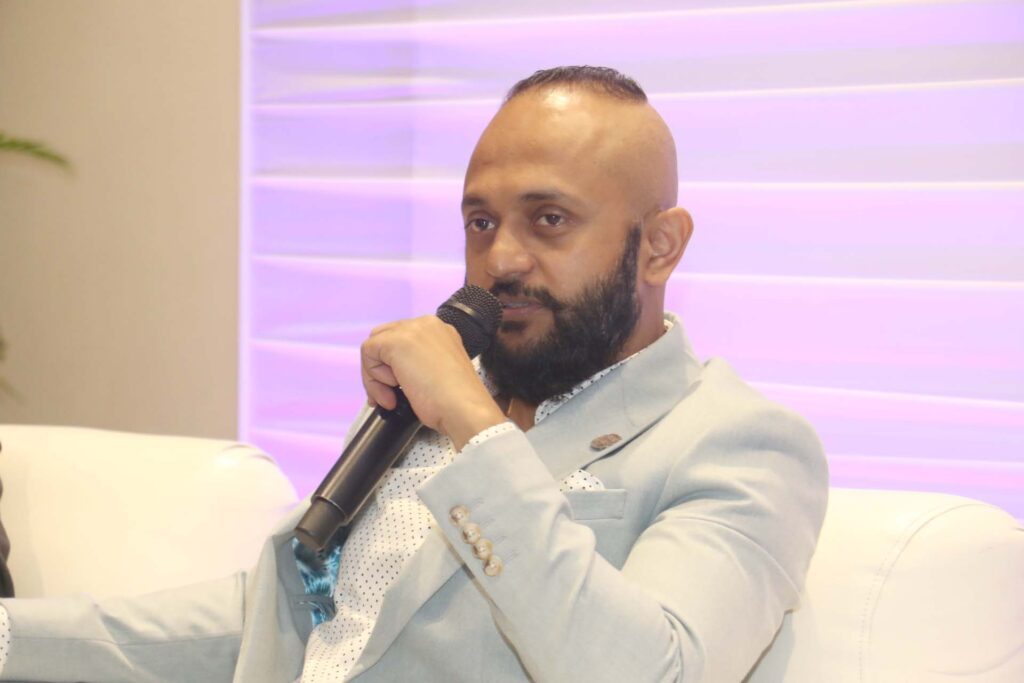
Sector president says players are prepared, foresees increased benefits for workforce

The buoyant growth in the business process outsourcing (BPO) industry in Jamaica could be disrupted with the expected displacement that is to result from the increased use of artificial intelligence (AI).
That’s the view of minister with responsibility for digital transformation, Dr Dana Morris Dixon, who said the time to prepare the country’s workforce for the technological age is now. Morris Dixon, who was speaking yesterday at the Private Sector Organisation of Jamaica’s (PSOJ) business forum, which focused on ‘Unleashing Jamaica’s Human Capital: Preparing for the Future’, pointed to the changes occurring with job functions as a result of technology.
“I do believe that with AI there are opportunities and there are risks. With AI there is going to be displacement so the question is, what do we do? We need to upskill our people and we can’t start thinking about it tomorrow; it has to be now because the technology is already here. And we have to have a strategy and policy in place on how we are going to reskill and upskill these individuals who are in the BPO space and many other spaces in our country. They have to be a part of this world going forward and the only way that is going to happen is through upskilling and reskilling,” explained Morris Dixon, a 2004 Fulbright Scholar.
Importantly, the digital transformation minister said a large part of the solution to minimising the displacement is to move the BPO workforce up the value chain, by moving to a knowledge process outsourcing industry. She said there are a myriad of opportunities outside of the call centre-type operation, in cybersecurity, coding, software development and data centres.
She said this needs to happen before the displacement starts.
“The reality is the BPO sector is going to look very different in two years time,” Morris Dixon pointed out, especially for those in the area of customer service. “Generally, the whole economy is going to change over time,” she added.
Anand Biradar, president of the Global Services Association of Jamaica, which represents the approximately 90 BPO firms operating in Jamaica, said the sector is well prepared having long recognised the upcoming shift.

“In terms of mindset and in terms of being ready, the global services industry is best prepared I would say,” Biradar said in discounting fears about displacements.
In fact, he foresees more employment opportunities and increased earnings for those employed in the BPO sector, which will target more high-value gigs. The BPO sector currently employs some 60,000 persons and growing, according to government figures.
“The growth rate will continue and the simplier-level jobs that don’t require human intelligence will get automated and we will spend more time working on things that are more complicated which also means, the more complicated things you work on, the more economically empowered you will be,” he told Our Today.
Newly appointed principal of the University of the West Indies, Mona campus, Professor Densil Williams, agrees that the advent of AI will create more opportunities overall for the local BPO sector rather than result in a fallout.

“I don’t see it as something that is going to be displacing workers in any significant way in the BPO sector. Yes, there may be some displacement but the net is going to be positive because what we are going to see is that we are going to still need the human intelligence to do the more analytical part of the BPO work,” he told Our Today.
In the meantime, the minister with responsibility for transforming the island’s workforce said efforts are underway to put in place a policy and strategy to guide the transformation.
“We need high-school graduates who are numerate and literate at the requisite level, but we also need them to be able to use basic computer programmes and be introduced to coding from very early. That is very necessary. All skill areas are now affected by technology, even the traditional areas are being affected,” stated Morris Dixon, who was sworn-in as one of the newest members of the Cabinet on May 25.
Importantly, she said the HEART NSTA Trust will be a critical element in the execution of that strategy.
“What HEART has been doing in their programmes is introducing a lot more of that technology. So HEART is becoming a technology school that layers on other skills on top of it because that’s where the world is going,” she said.
“The world has changed and in order for us to change with the world, we have to rethink the way we educate our people even from high school… and even in or TVET landscape where technology is at the centre of everything that we do,” Morris Dixon emphasised.






Comments